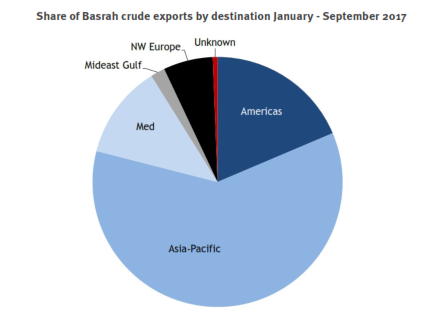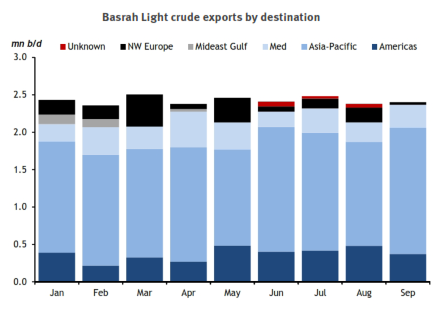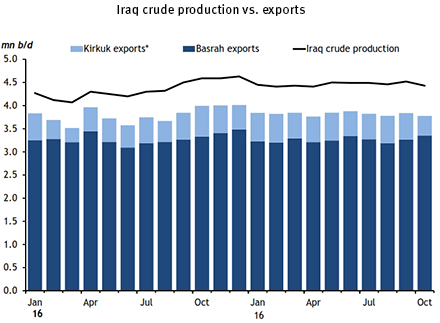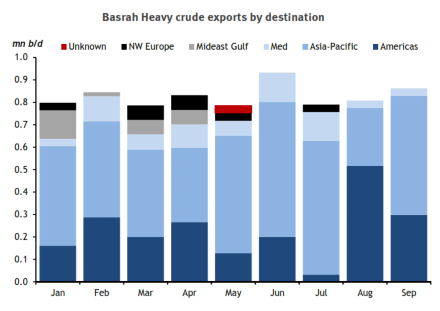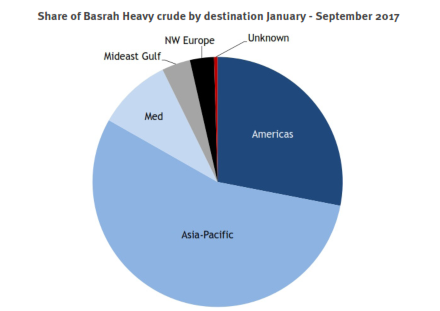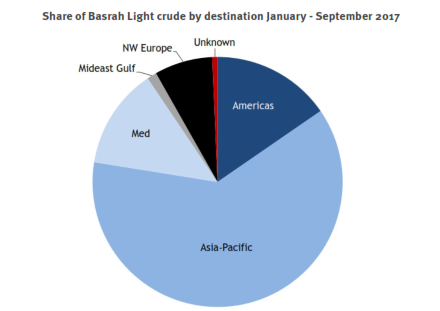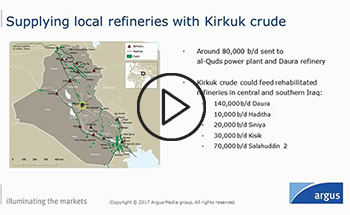Notice: By accessing this site you agree that you will not copy or reproduce any part of its contents (including, but not limited to, single prices, graphs or news content) in any form or for any purpose whatsoever without the prior written consent of the publisher.
ARGUS, the ARGUS logo, ARGUS MEDIA, ARGUS DIRECT, ARGUS OPEN MARKETS, AOM, FMB, DEWITT, JIM JORDAN & ASSOCIATES, JJ&, FUNDALYTICS, METAL-PAGES, METALPRICES.COM, Argus publication titles and Argus index names are trademarks of Argus Media Limited.

Transcript: Is Rosneft’s decision to invest in Kurdistan under current circumstances realistic?
Firstly, Rosneft already has investment interest in the Kurdish region of Iraq: it has a two-year crude prepayment deal with the Kurdistan Regional Government (KRG) and takes Kurdish crude to its refineries in Germany.
But also what is important to remember is that Rosneft has announced investment in Kurdish infrastructure at what could be described as quite strategic times. It put out a statement before the referendum when the KRG was seeing strong opposition from governments in neighbouring countries, the US, the EU as well as from Baghdad. And it could also be seen as giving the Kurdistan region some political backing at a time where Baghdad said it would take legal action against international oil firms striking independent agreements with governments outside of federal Iraq, which would include the provincial government in Erbil.
Rosneft could be seen to be in a strategic position as a state-owned Russian firm. Russia’s state-controlled Gazpromneft and private-sector firm Lukoil operate in federal Iraq. This also places Russia in an interesting position strategically between Erbil and Baghdad.
Other international oil firms have a stake in Rosneft including BP, which holds around 20pc. Interestingly, the oil ministry in Baghdad has asked BP to develop the fields in Kirkuk, on top of its operations at the Rumaila field in the south.
Consequently, from a strategic point of view, Rosneft could be well-placed for investment risks which may arise going forward.
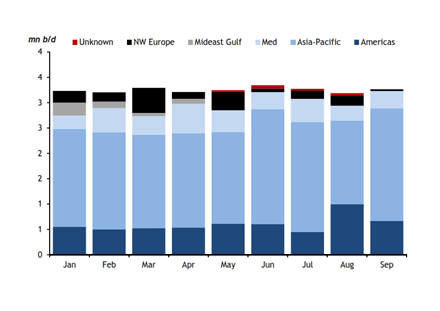
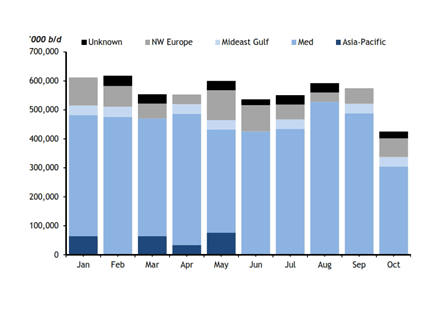
Request free trial access here.

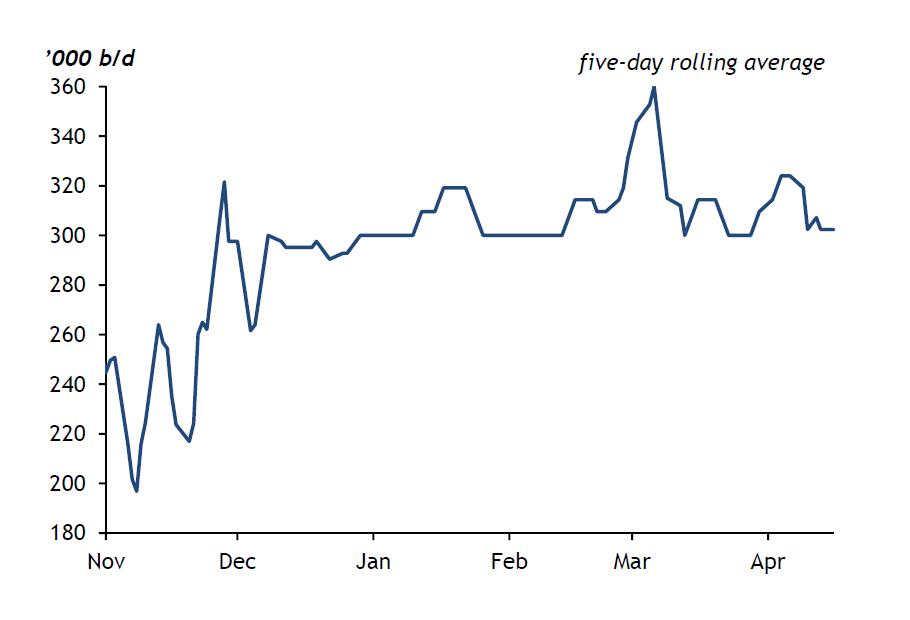
Rowena Caine and Ruxandra Iordache analyse the oil ministry’s plans to use the crude produced from these fields and to diversify Iraq’s export outlets. Listen now >
(11 April) Iraq has completed a new 11.6km export pipeline project to transport up to 1.5mn b/d from the Fao storage depots in Basrah to export terminals, the ministry said today. Read more >
(16 April) Iraq's oil ministry said 14 companies have shown interest in a bid round for 11 oil and gas exploration and development blocks. Read more >
(11 April) Scheduled April maintenance works initially set to take offline the four jetties of Iraq's Basrah Oil terminal (BOT) will take place in May at the earliest, according to shipping and trading sources. Subscribe to read >
(9 April) Iraq's supreme federal court will begin hearing a lawsuit in May, brought by the oil minister over the legality of independent exports by the Kurdistan Regional Government (KRG). Read more >
(10 April) Iraqi LPG exports totalled 73,750t in the first quarter of this year, and oil minister Jabbar al-Luaibi expects exports to rise year on year in 2018. Subscribe to read >
(11 April) London-listed Gulf Keystone Petroleum (GKP) said nameplate capacity at the Shaikan field in the semi-autonomous Kurdish region of northern Iraq could be increased to 55,000 b/d during 2019. It plans to boost production to 40,000 b/d "as quickly as possible." Read more >

